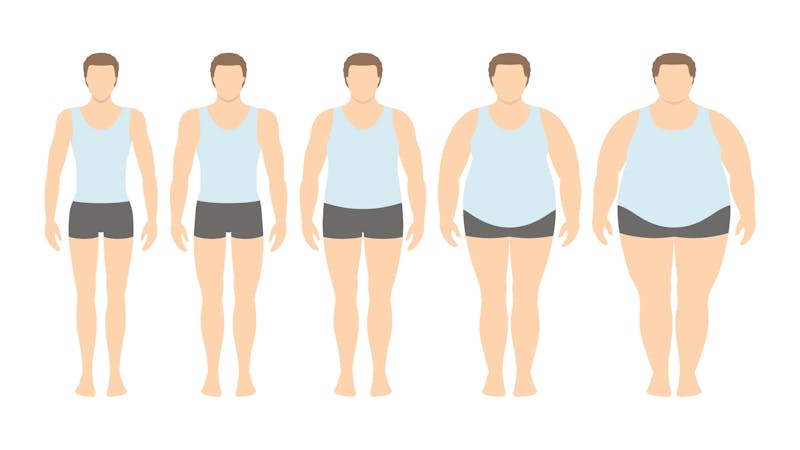Elevated BMI tied to shorter life
 At the end of October, two large, new studies made headlines, both looking at the relationship between body mass index (BMI) and mortality.
At the end of October, two large, new studies made headlines, both looking at the relationship between body mass index (BMI) and mortality.
Eurek Alert: Study of 500,000 people clarifies the risks of obesity
CNN: Obesity, low BMI linked to increased risk of death, study reveals
The first study, published in Obesity, used a technique called Mendelian randomization, which employs genetic markers and number crunching to mimic a clinical trial. (For more on Mendelian randomizations, Gary Taubes gave a nice explanation of how these analyses work in this MIT Technology Review article last summer.) The study authors looked at the genomes and health status of over 500,000 individuals from the UK, and concluded:
“Results support a causal role of higher BMI in increasing the risk of all-cause mortality and mortality from several specific causes.”
Specifically, a five point BMI increase was associated with a 16% increase in all-cause mortality and a 61% increase in cardiovascular disease mortality.
The second study, just published in The Lancet Diabetes & Endocrinology, was a very large observational cohort study of 3.6 million adults, also from the UK.1 The authors looked at overall mortality and specific-cause mortality, and noted higher death rates among both overweight and underweight individuals:
Most causes, including cancer, cardiovascular diseases, and respiratory diseases, had a J-shaped association with BMI, with lowest risk occurring in the range 21–25 kg/m2… Compared with individuals of healthy weight (BMI 18·5–24·9 kg/m2), life expectancy from age 40 years was 4·2 years shorter in obese (BMI ≥30·0 kg/m2) men and 3·5 years shorter in obese women, and 4·3 years shorter in underweight (BMI <18·5 kg/m2) men and 4·5 years shorter in underweight women.
This research helps to counter what is known as the “obesity paradox” — the idea that obesity might protect patients with heart disease and help them live longer. The LA Times wrote about this earlier this year in its article, “The obesity paradox debunked: People with extra pounds do not live longer, study shows.” Essentially, a JAMA study demonstrated that excess weight can mean earlier onset of heart disease, which may mean more time with the disease than normal weight peers, but not a longer life.
As the authors of another recent study concluded, “Any public misconception of a potential ‘protective’ effect of fat on [cardiovascular disease] risk should be challenged.”
Attaining a normal BMI may be out of reach for some of us; however, these studies show that moving weight closer to a normal range could quite possibly help prolong life.
Earlier
A record of seven US states now have obesity rates above 35%
Dr. Ludwig in the NYT: The toll of America’s obesity
Cardiologist in The Washington Times: “Carbohydrates are killing us”
Guides
Low carb
Observational studies show associations, but do not prove that an effect is causally linked. Hence, on a stand-alone basis, this is only [weak evidence] that obesity causes a shorter life. The large Mendelian randomization showing the same result gives us more confidence that this association is credible. ↩

















